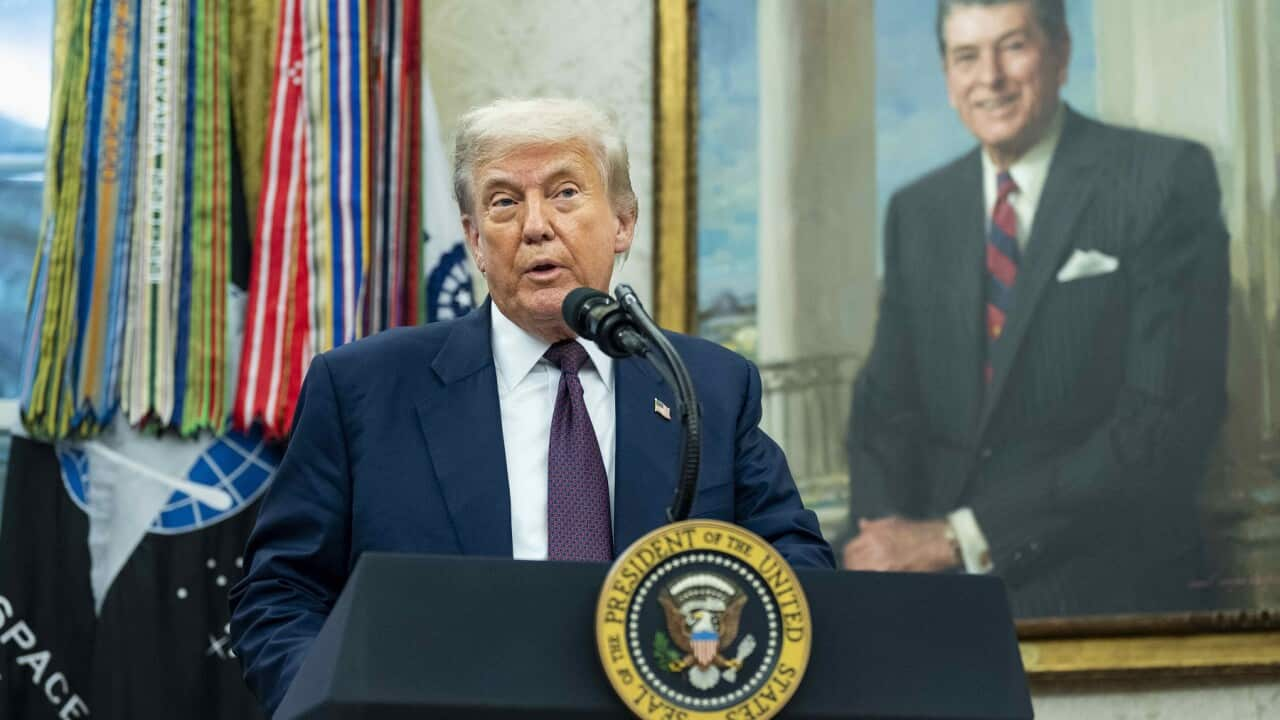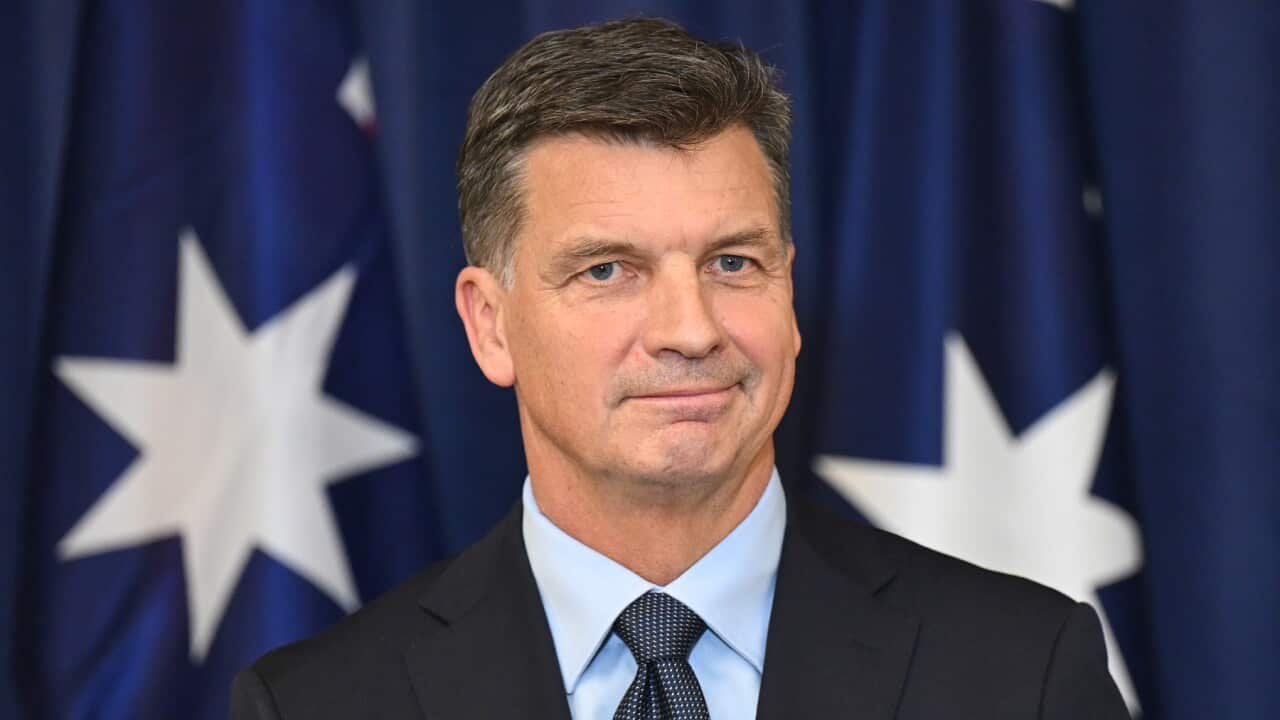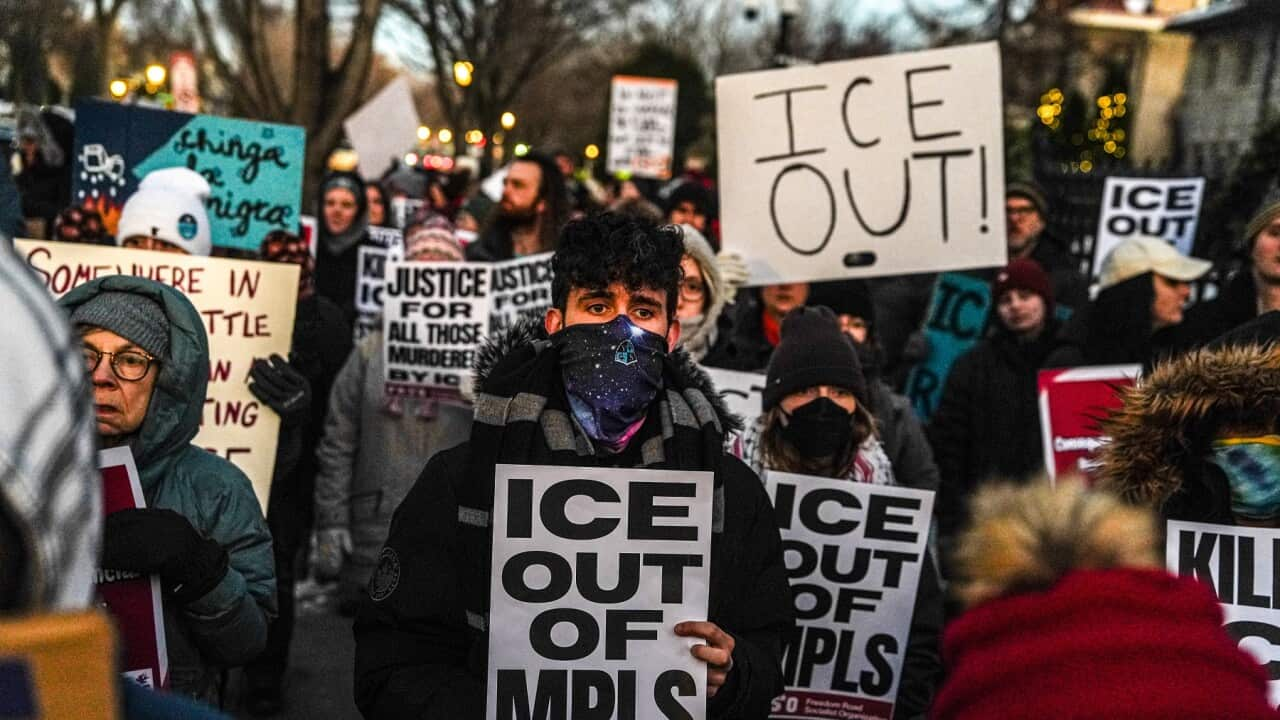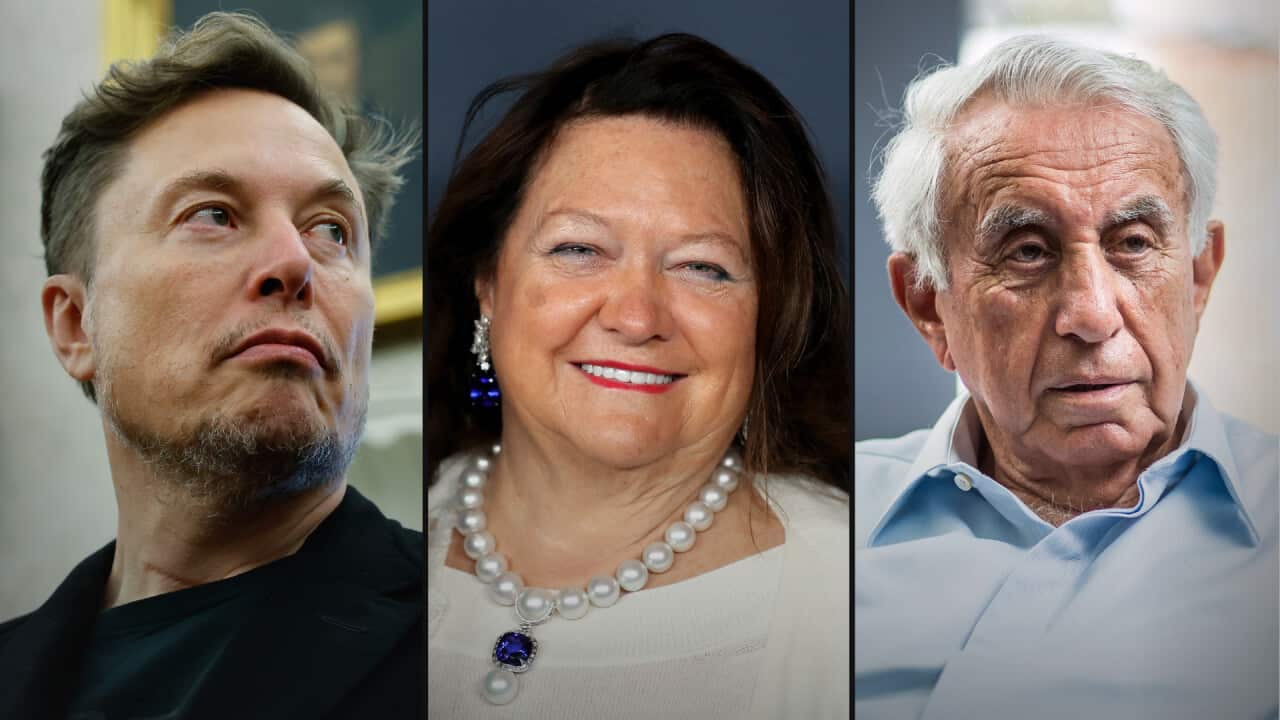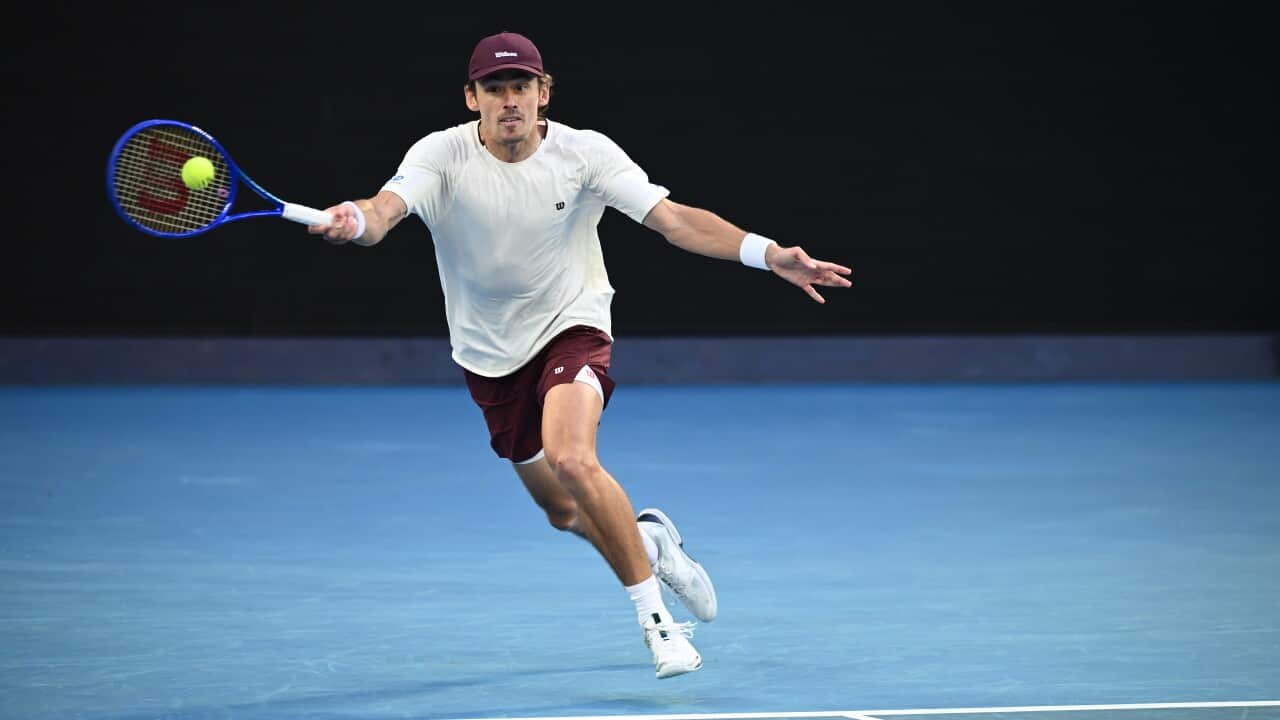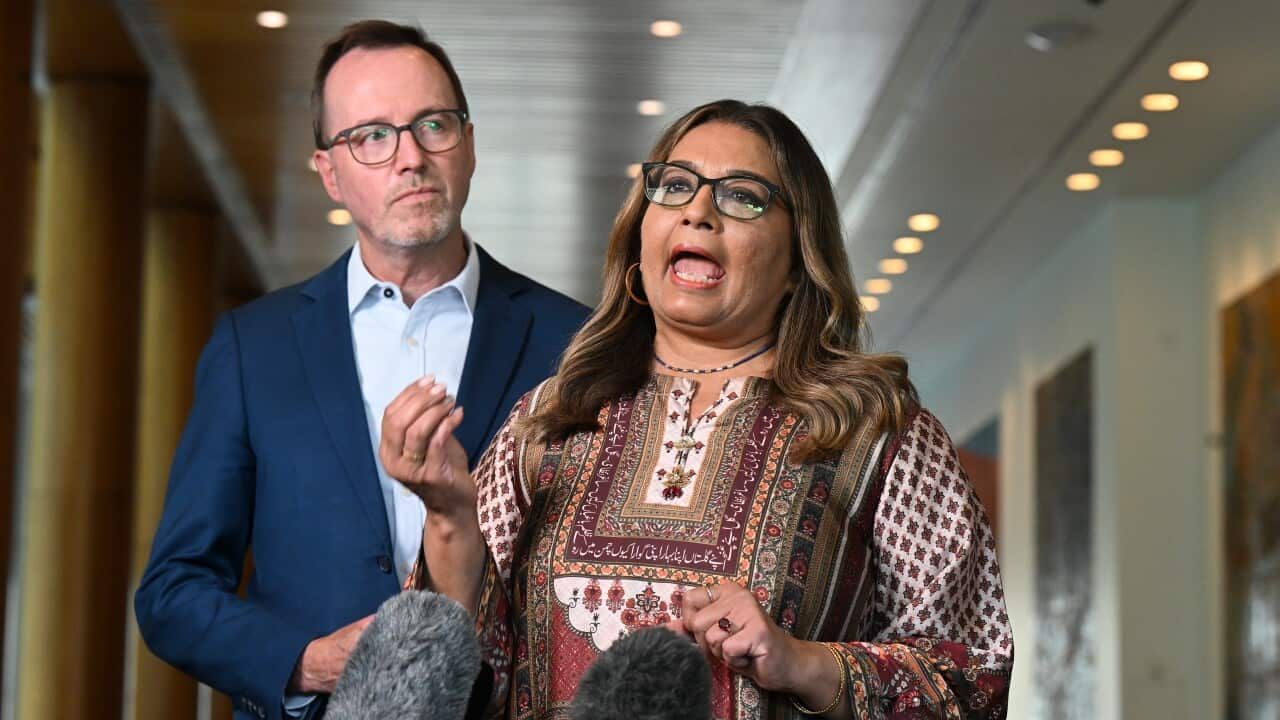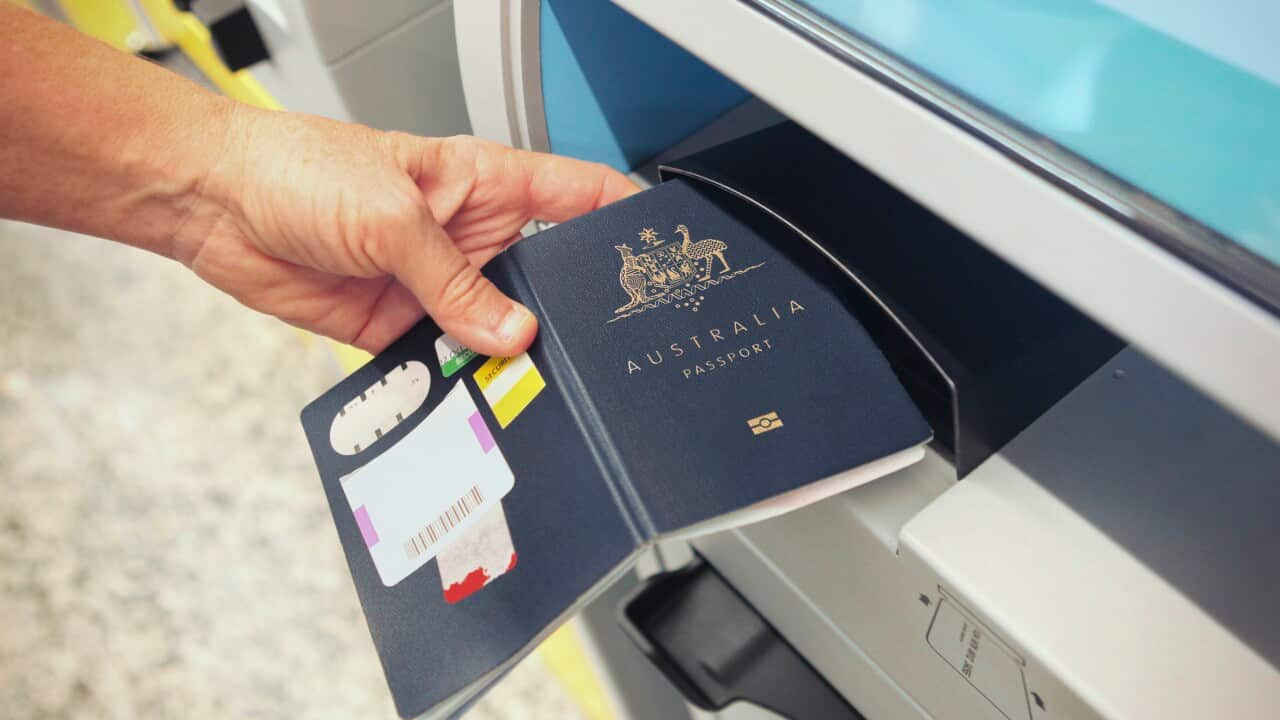Listen to Australian and world news, and follow trending topics with SBS News Podcasts.
TRANSCRIPT
United States President Donald Trump returned to power with the promise of peace.
And after numerous failed attempt to bring the war in Gaza and the war in Ukraine to a close, he's holding out hope for decisive new talks with Russian President Vladimir Putin as early as next week.
"Well, there's a very good prospect that they will. And we haven't determined where, but we had some very good talks with President Putin today. And there's very good chance that we could be ending the, ending the round, ending that road."
The announcement follows a productive meeting between U-S Envoy Steve Witkoff and Mr Putin, two days ahead of a U-S deadline set for Russia to either agree to peace in Ukraine or face new sanctions.
The potential presidential talks were discussed in a call between Mr Trump and Ukrainian President Volodymyr Zelenskyy, which the Ukrainian leaders says also included the NATO secretary and several European leaders.
"European leaders also participated in the conversation, and I am grateful to each of them for their support. We discussed what was said in Moscow. It seems that Russia is now more inclined to agree to a ceasefire; the pressure on them is working. But the main thing is that they do not deceive us or the United States in the details."
Despite the latest talks going well, senior U-S officials say secondary tariffs on Russia and their trading partners are still expected to be implemented if no peace deal is agreed to.
President Trump has imposed an additional 25 per cent tariff on goods from India, citing their continued imports of Russian oil, with duties on some Indian exports now as high as 50 per cent.
"As you know, we put a 50 per cent tariff on India on oil. They're the second largest. They're very close to China in terms of the purchase of oil from Russia. But so I don't know if that had anything to do with it, but we've had very productive talks today."
Michael Kugelman, a senior fellow of the Asia Pacific Foundation, says the U-S is ratcheting up the pressure on Russia.
"Trump clearly wants to help end the war in the Ukraine. And he wants to put pressure on Russia by putting pressure on India, a close commercial partner of Russia. India had been able to diversify its source of energy suppliers in the years prior to the Russian invasion of Ukraine, and the percentage of its energy imports and its oil imports coming from Russia was relatively low. But it is striking how quickly it ramped up those imports after the invasion. India's position is that it did it for purely economic reasons, because the price point could not be beaten. This is cheap oil."
Indian economists say the tariffs are a cause for concern but not alarm, and could serve as an opportunity for the country to diversify its export markets.
But, Secretary-General at P-H-D Chamber of Commerce and Industry, Ranjeet Mehta, says the Indian government still needs to work to lower these tariffs to avoid impacting their rapidly-growing economy.
"We are concerned about these trade wars. However, Indian economy is very resilient and very robust, and this is an opportunity to diversify to other markets of the world. I think that this is the time to really realign the supply chain and focus on economies other than the US for the time being. However, we request, we urge both the government of India and the government of the US to engage in a dialogue so that these disruptions can be sorted out."
With Mr Trump's escalating tariff regime now used as a tool for diplomacy, there are questions about the long-term impacts on global trade.
The U-S leader has now said he's not ruling out on yet more sanctions for the U-S's geopolitical rival China, who is currently the biggest buyer of Russian oil.
TRUMP: "You're going to see a lot more. You're going to see so much secondary sanctions."
REPORTER: "Do you have any similar plans to enact more tariffs on China?"
TRUMP: "Could happen. Could happen. Depends on how we do. It may happen. I mean, I don't know. I can't tell you yet. We did it with India. We're doing it probably with a couple of others. One of them could be China."
